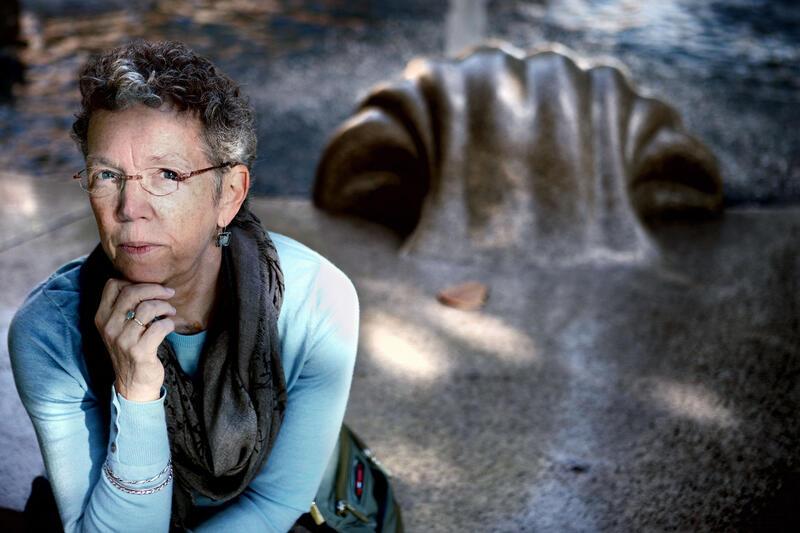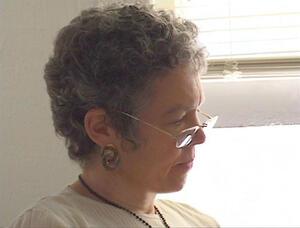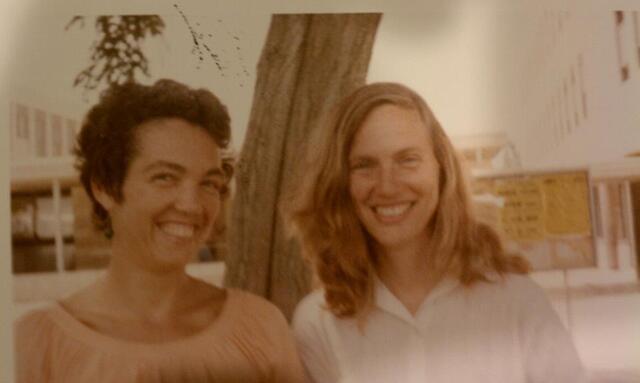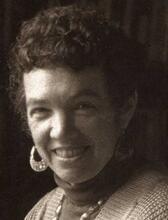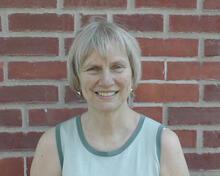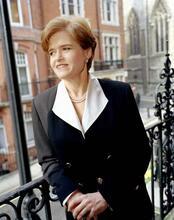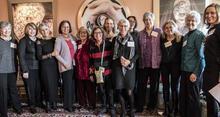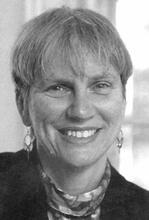Deborah Dash Moore
Deborah Dash Moore is an American Jewish historian whose scholarship focuses on Jewish urban life, the creation of ethnic identity, and visual culture. Much of her work has concentrated on New York’s vibrant Jewish community, uncovering its neighborhoods, streets, institutions, and photographic images. She has also explored the postwar Jewish culture of America’s Sunbelt, ventured into the experience of Jews who served in World War II, and examined the impact of women and gender in Jewish life. Moore has been a trailblazer in the field of American Jewish history who has chronicled the myriad expressions of Jewish culture in 20th-century America. She has been an influential teacher and mentor as well as a key leader in the field of modern Jewish history.
Deborah Dash Moore has been a pivotal figure in the emergence and advancement of the field of American Jewish history since the last quarter of the twentieth century. Not only has she shaped the field through her writings; she has also energetically sponsored conferences, tirelessly mentored graduate students and young scholars, and directed major programs, institutions, and book projects that address the modern and American Jewish experiences.
Family, Education, and Career
Moore is a child of New York City. Born on August 6, 1946, to Irene Golden Dash, who in her later years became a professor of English, and Martin Dash, a greeting card publisher, she shared her city upbringing with her younger sister Deena (b. 1949). Indeed, the city, along with its schools, became her classroom. She left New York City to study history at Brandeis University, where she received her B.A. (magna cum laude) and met and married MacDonald Moore, a fellow historian. They have two sons, Mordecai (b. 1971) and Mikhael (b. 1974).
Returning to New York City, Moore pursued graduate studies in American and Jewish history at Columbia University, completing her Ph.D. in 1975. After a brief stint at Montclair State College, she taught at Vassar College from 1976 to 2005, serving as chair of the Department of Religion from 1983 to 1987 and as acting chair from 1990 to 1991, Director of the American Culture Program from 1992 to 1995, and Acting Director (1999–2000) and Director (2003–2005) of the Jewish Studies Program. She became the William R. Kenan, Jr. Professor of Religion in 2003. During the 1970s and 1980s she also taught Jewish history at the YIVO Institute for Jewish Research and served as the Dean of its Max Weinreich Center for Advanced Jewish Studies in 1988–1989. In 2005 she was named the Frederick G. L. Huetwell Professor of History and Director of the Jean and Samuel Frankel Center for Judaic Studies at the University of Michigan. After a decade of leadership at the Frankel Institute, she stepped down as director but continues as an active and engaged faculty member at Michigan.
Ground-breaking Scholarship
Moore has devoted her career to exploring the social history of American Jews, primarily in the twentieth century. Her first book, At Home in America (1981), demonstrated that second-generation American Jews, the children of East European immigrants, preserved and reshaped their parents’ ethnic consciousness in the new neighborhoods they built in the Bronx and Brooklyn. Focusing on their cultural and political activities, she challenged the regnant conventional wisdom that second-generation Jews simply tried to distance themselves from the legacy of their parents’ identities. Among her innovations were her analysis of urban neighborhoods and her identification of Jewish builders as key figures in stimulating the trajectory of urban relocation. The book has become a classic in American Jewish and ethnic history.
Although an institutional history, her second book again placed Jewish ethnicity at the heart of her narrative. B’nai B’rith and the Challenge of Ethnic Leadership (1981) showed that America’s oldest secular Jewish organization, founded in 1843, was rooted in the ethnic self-definition of its leaders and members. Jewish ethnicity in America, therefore, predated the arrival of East European immigrants to American shores.
Extending her interest in Jewish social and geographic mobility in the urban context, Moore’s next book, To the Golden Cities: Pursuing the American Jewish Dream in Miami and L.A. (1994), explored the social, cultural, and political impact of the mass migration of American Jews in the years after World War II to the cities of the sunbelt. Combining archival documents and cultural productions with skillfully conducted interviews, as she had done in her first book, Moore provided a richly textured comparative analysis of a major shift in American Jewish history. Her work demonstrates a keen eye for observing the ways American Jews have constantly reinvented their culture in different contexts and in different generations. To the Golden Cities won the Saul Viener Prize for Best Book in American Jewish History, 1994–1995.
While At Home in America and To the Golden Cities focused on new kinds of communities, Moore’s next book, GI Jews: How World War II Changed a Generation (2004), offered an unprecedented exploration of the ways military service deepened and transformed the identities of Jewish soldiers. Selected as The Washington Post Best Book of the Year, GI Jews also inspired the 2018 documentary film GI Jews: Jewish Americans in World War II, directed by Lisa Ades, for which Moore served as primary advisor.
Moore’s scholarly interests reveal an ongoing concern with both urban and visual culture. In 2001, she co-authored Cityscapes: A History of New York in Images, which traced the city’s history through images—a book that in many ways planted the seeds for her future research interests in both photography and urban culture. She continued her exploration of Jews and the city in The Urban Origins of American Judaism (2014), where she traced the ways the rhythms of city life shaped the religious practices of American Jews, examining the synagogues, streetscapes, and snapshots that defined Jewish life in the United States. Her current research project focuses on the work of mid-twentieth-century New York Jewish photographers. Rather than considering how Jews have been represented in visual images, Moore’s work shifts the focus to the ways Jewish photographers crafted their own vision of the city from behind the camera.
When Moore noted the absence of a comprehensive study of New York Jewry, she spearheaded an effort to create one. As a result, under her guidance and editorship, a three-volume set of original research, City of Promises: The History of the Jews in New York, appeared and received the Everett Family Foundation Jewish Book of the Year Award in 2012. Five years later, Moore published a single volume that grew from that project, titled Jewish New York: The Remarkable Story of a City and a People (2017).
Deborah Moore also lectures widely in the United States and abroad. In addition to many edited volumes, she has also published dozens of articles, on subjects as diverse as ethnicity, the Rosenberg case, Emile Durkheim, photography, and Jewish women.
Editing, Consulting, and Administration
Deborah Moore is not only a gifted scholar in her own right, but also someone who regularly conceives, produces, and shepherds a range of broad and innovative projects. Together with historian Paula Hyman, she co-edited the two-volume Jewish Women in America: An Historical Encyclopedia (1997). The Encyclopedia received many awards, including the Dartmouth Medal of the American Library Association for the best reference work of 1997 and the National Jewish Book Award for best book in Women’s Studies. A co-edited anthology with Marion Kaplan on Gender and Jewish History in honor of Paula Hyman followed in 2010, and won a National Jewish Book Award.
Moore has also been active in the academic world as an editor, consultant (for films and exhibits), and administrator. In 2016, she was named Edi]tor-in-Chief of the Posen Library of Jewish Culture and Civilization, a ten-volume anthology of Jewish literature, artwork, and artifacts published by Yale University Press. She has helped to produce key works in the field in her role as co-editor of Indiana University Press’s Modern Jewish History series and of Rutgers University Press’s series Keywords in Jewish Studies. From 1989 to 1996 she edited the YIVO Annual, and she has served on the editorial boards of, among others, the Oxford Companion to Religion in America, American Jewish History, Religion in American Culture, Contemporary Jewry, Sh’ma, and The Reconstructionist. She was vice president for membership of the Association for Jewish Studies from 2000 to 2003, Chair of the Academic Council of the American Jewish Historical Society from 2003 to 2006, and member (since 1997) and elected officer of the American Academy for Jewish Research, among a host of other leadership positions.
Moore has also been widely recognized for her achievements. She has held a Fulbright Fellowship for Senior Scholars at the Hebrew University (1984–1985), a Skirball Visiting Fellowship at the Oxford Centre for Hebrew and Jewish Studies (1996), a Center for Judaic Studies Fellowship at the University of Pennsylvania (1996–1997), a Pew Fellowship at Yale University (2001–2002), a vising scholar appointment as the Edna Gene and Jordan Davidson Chair at Florida International University (2003); an OAH-JAAS Visiting Lecturer award at Kitakyhushu University in Japan (2011); and a Katz Center for Advanced Judaic Studies Fellowship at the University of Pennsylvania (2020-2021). She has also received grants from the National Endowment for the Humanities, the Mellon Foundation and the Littauer Foundation. In 2001, she was awarded an honorary Doctor of Humane Letters by the Reconstructionist Rabbinical College. She received the Marshall Sklare Award from the Association for the Social Scientific Study of Jewry (ASSJ) in 2006. In 2012, the American Jewish Historical Society (AJHS) awarded her the Lee Max Friedman Award Medal for distinguished service in the field of American Jewish History. The following year, the Foundation for Jewish Culture honored her with a Jewish Cultural Achievement Award. Moore serves as Distinguished Lecturer for the Association for Jewish Studies and the Organization of American Historians.
Through her scholarship, administration, teaching and mentorship, Deborah Dash Moore has played a decisive role in the establishment of American Jewish history as a recognized field in both American and Jewish history. She has shaped both academic and popular understandings of American Jewish history and profoundly influenced future generations of scholars.
Selected Works by Deborah Dash Moore
Jewish New York: The Remarkable Story of a City and a People, co-authored with Jeffrey S. Gurock, Annie Polland, Howard B. Rock, and Daniel Soyer. New York: New York University Press, 2017.
Urban Origins of American Judaism. Athens, GA: University of Georgia Press, 2014.
City of Promises: A History of New York Jews, general editor. New York: New York University Press, 2012.
Gender and Jewish History, co-editor with Marion Kaplan. Bloomington, IN: Indiana University Press, 2010
GI Jews: How World War II Changed a Generation. Cambridge, MA: Harvard University Press, 2004.
Cityscapes: A History of New York in Images, with Howard Rock. New York: Columbia University Press, 2001.
Jewish Women in America: An Historical Encyclopedia. Co-editor with Paula Hyman. 2 vol. New York: Routledge, 1997.
To the Golden Cities: Pursuing the American Jewish Dream in Miami and L.A. New York: The Free Press, 1994.
B'nai Brith and the Challenge of Ethnic Leadership. Albany: State University of New York Press, 1981.
At Home in America: Second Generation New York Jews. New York: Columbia University Press, 1981.

